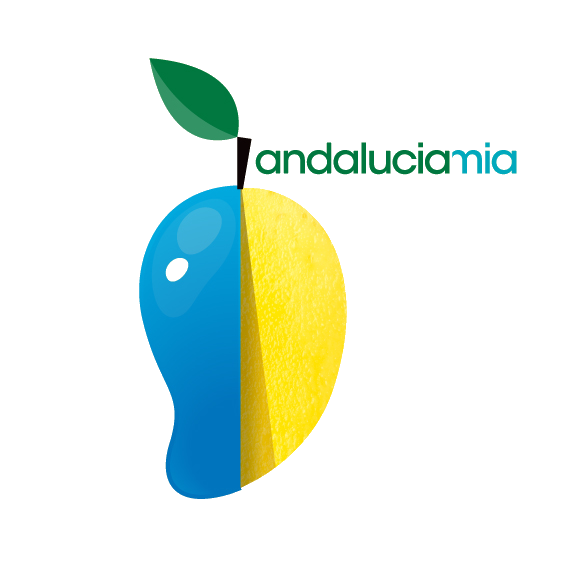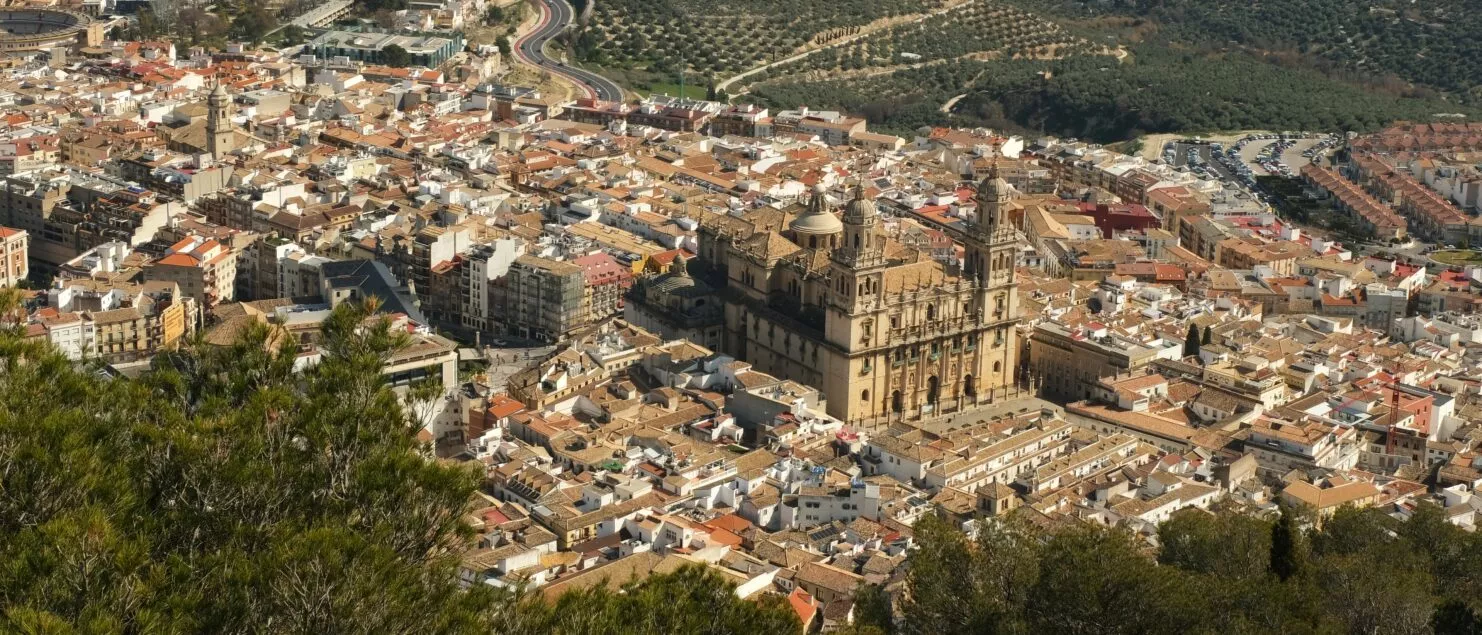10 best things to see in Jaen
What to see and do in Jaen
In this article you’ll find all the information you need to know about what to see and do in Jaen:
- A few words about Jaen and its origins
- Where is Jaen on the map?
- What to see in Jaen – the 10 essentials
- What to do in Jaen
- Book accommodation
- The best ferias in Jaen
- What to see around Jaen
- Some useful links
- The latest articles on authentic Andalucia
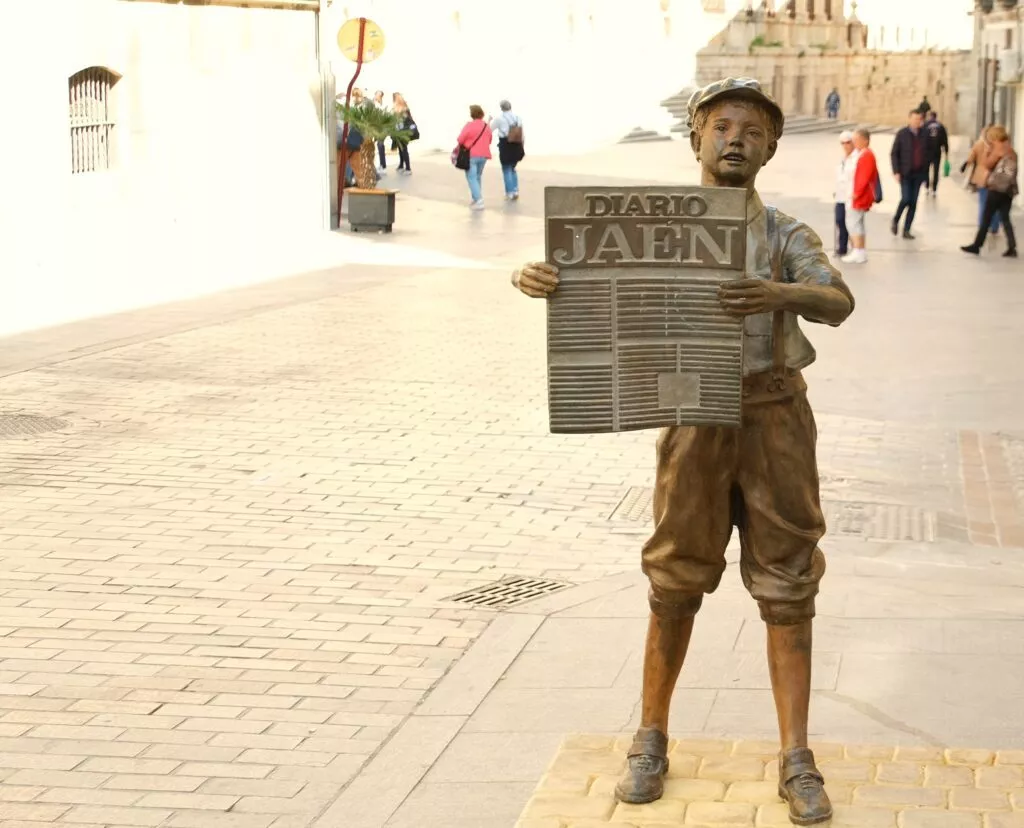
A few words about Jaen and its origins
Jaen is known today as the olive oil capital of the world.
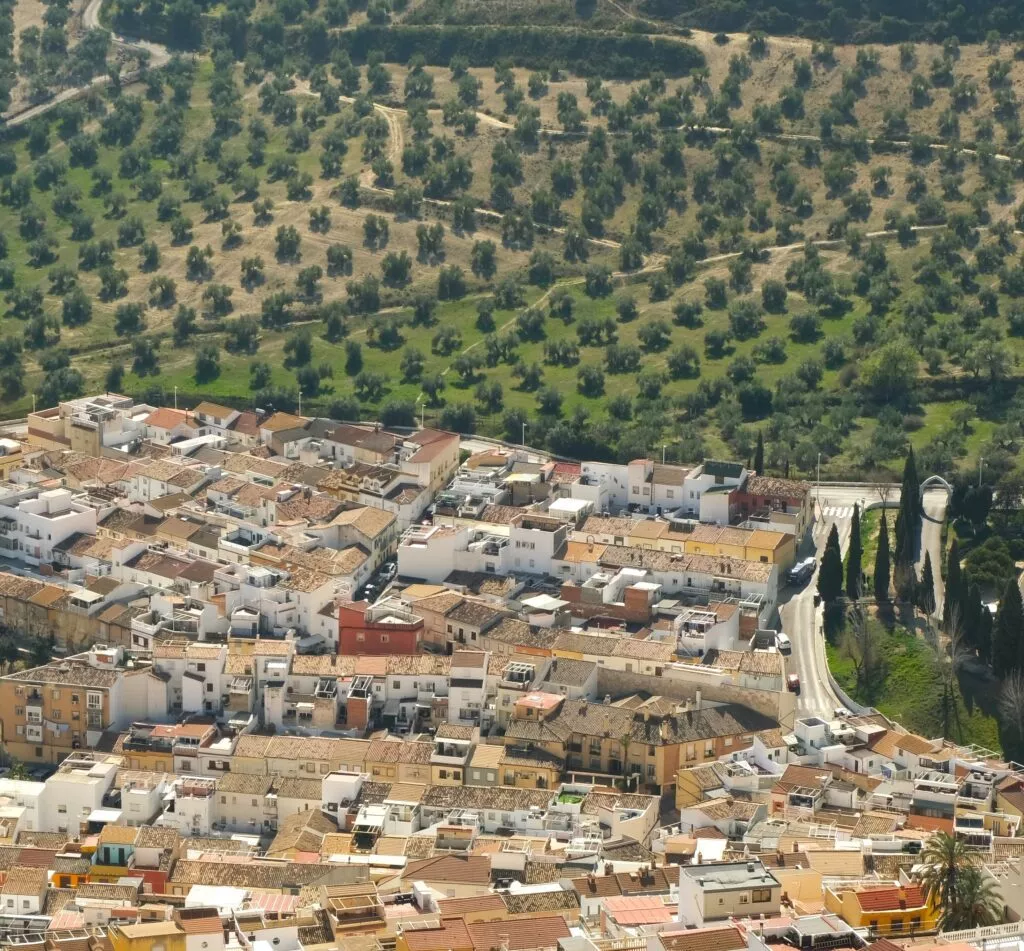
However, it also offers visitors a wonderful journey back in time, through several civilisations and religions.
Jaen has been inhabited for thousands of years, as we’ll see below with the Santa Catalina castle. As for the place name – Jaen – it comes from the history of the time of Al-Andalus and was later Spanishised. A time when Jaen was called جَإِيَّان, Ŷaīyān, Jayyān.
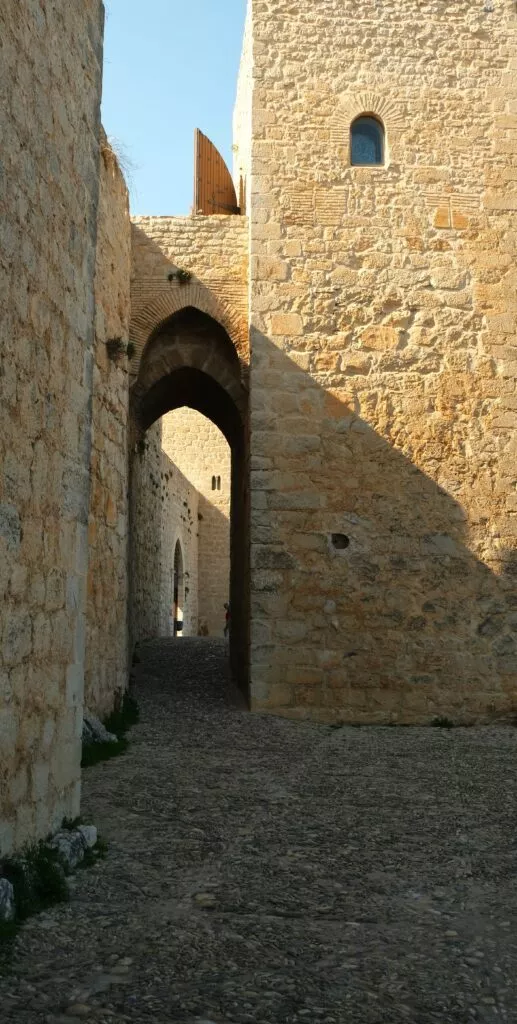
Three anecdotes to know about Jaen
1 – There is another version about the Jewish origins of the name Jaen. In fact, the Jews were already present almost 2000 years ago, at the time of the Romans. We know this thanks to a Visigothic document dating from 612.
In that year, the Visigoth king Sidebuto promulgated a new law prohibiting Jews from owning Christian slaves. This law suggests that in Roman times this was permitted and, above all, that the number of Jews must have been significant.
The Sephardic surname Dayan (which means ‘judge’ in Hebrew) could also be the origin of the town’s name, Arabicised into Ŷaīyān, Jayyān.
2 – This anecdote is directly related to the previous one: in Jaen you may hear the expression ‘hacer el sabado’. It’s a popular expression whose origins are linked to the Sabbath, which today means doing the housework, the big weekly clean-up. And today we ‘do the sabado’ any day of the week. However, during the Inquisition, the idea was to ostentatiously show that the Sabbath was not being observed by cleaning the house on Saturday.
3 – The following expression: don’t be mistaken if you hear ‘Vamos a ligar’. This phrase has a special meaning in Jaen, so be careful :)) . In fact, locally this expression means that we’re going out to eat some tapas and have a few drinks. The meaning is therefore quite different from the rest of Spain, where it means going out to pick up girls.
Where is Jaen on the map?
What to see and do in Jaen – the 10 essentials
1 – Santa Catalina Castle
2 – The Mirador de la Cruz
3 – The Assumption Cathedral in Jaen
4 – The Arab Baths
5 – The Santa Cruz district
6 – The Magdalena district and church
7 – The air raid shelter (during the Civil War)
8 – Puerta del Ángel
9 – Minor Basilica of San Ildefonso
10 – The Iberian Museum
Note: for the first time in my blog articles on Andalucia, the photos of places to see and visit in Jaen are taken from above.
Santa Catalina Castle, a must-see in Jaen
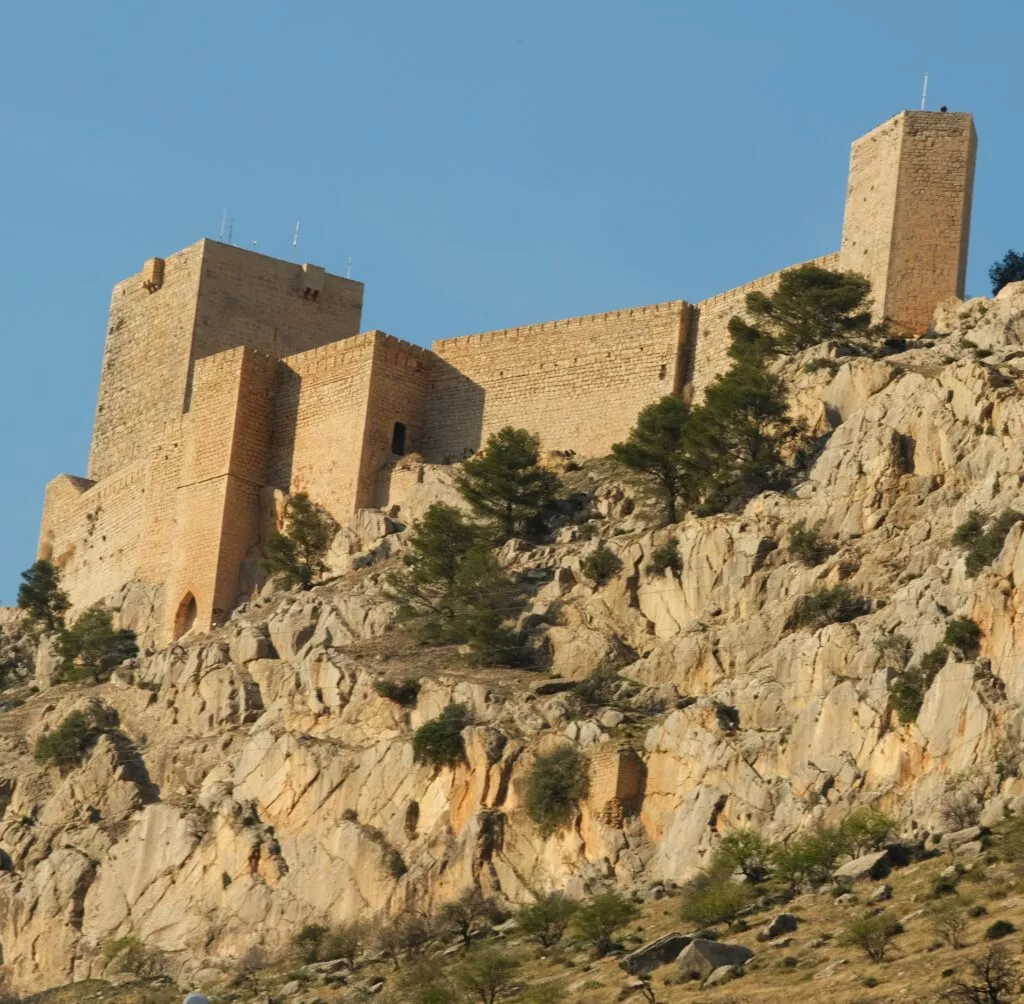
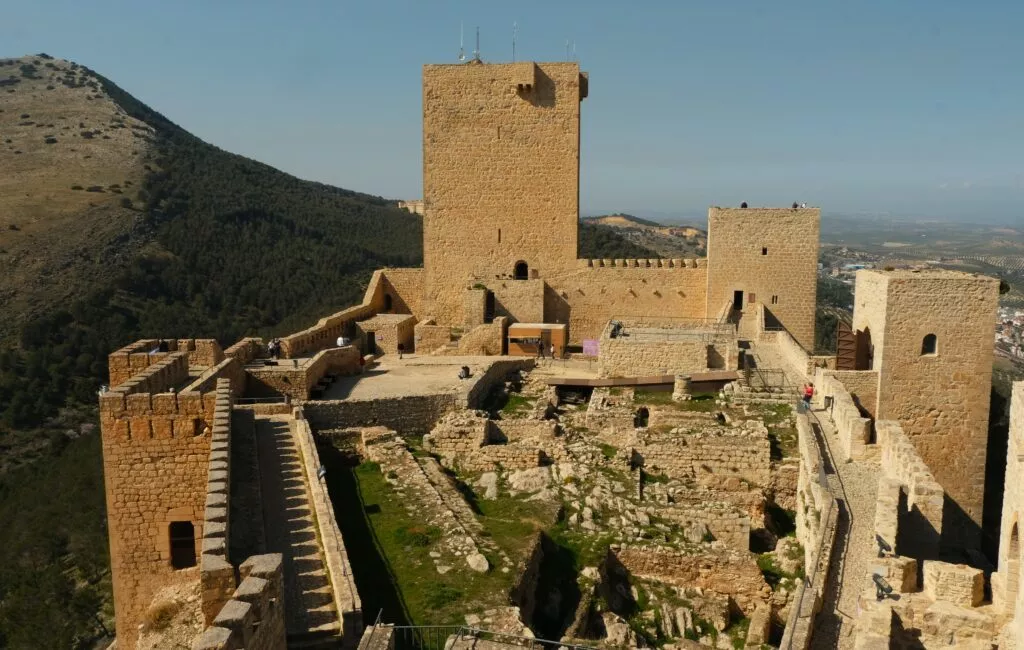
The castle was ceded to the Castilian forces in 1246.
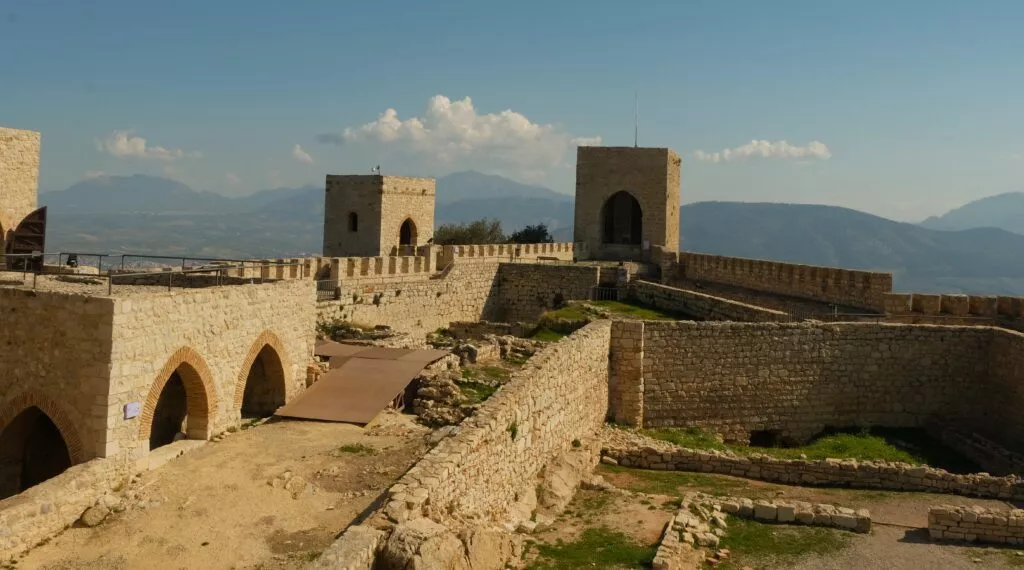
The Mirador de la Cruz
On leaving the castle, you can take a short walk to an enormous cross. Legend has it that it was erected by Ferdinand III the Saint himself.
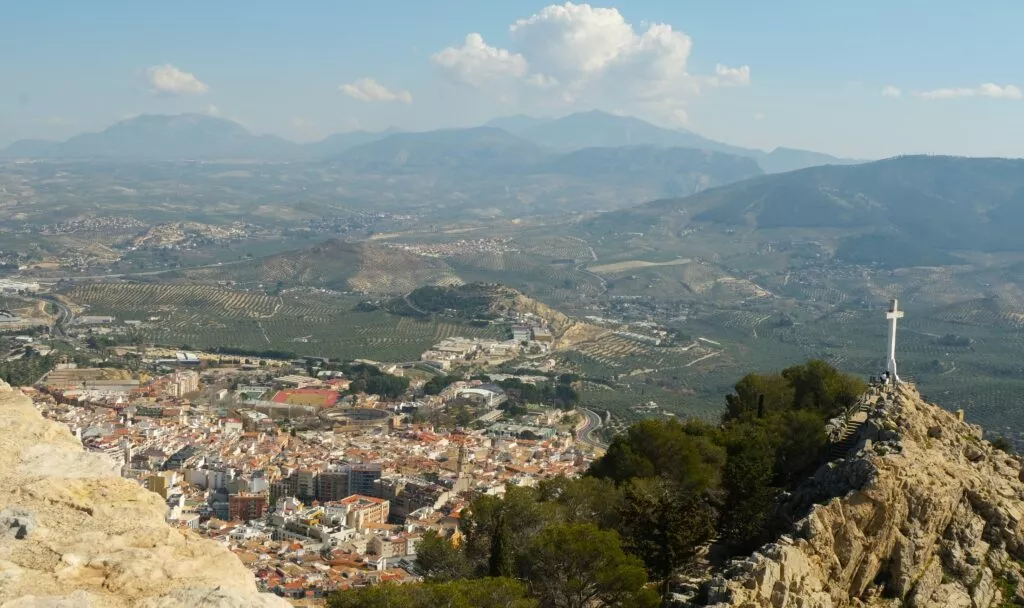
From this cross, you can enjoy some absolutely magnificent views, including of Jaen Cathedral:
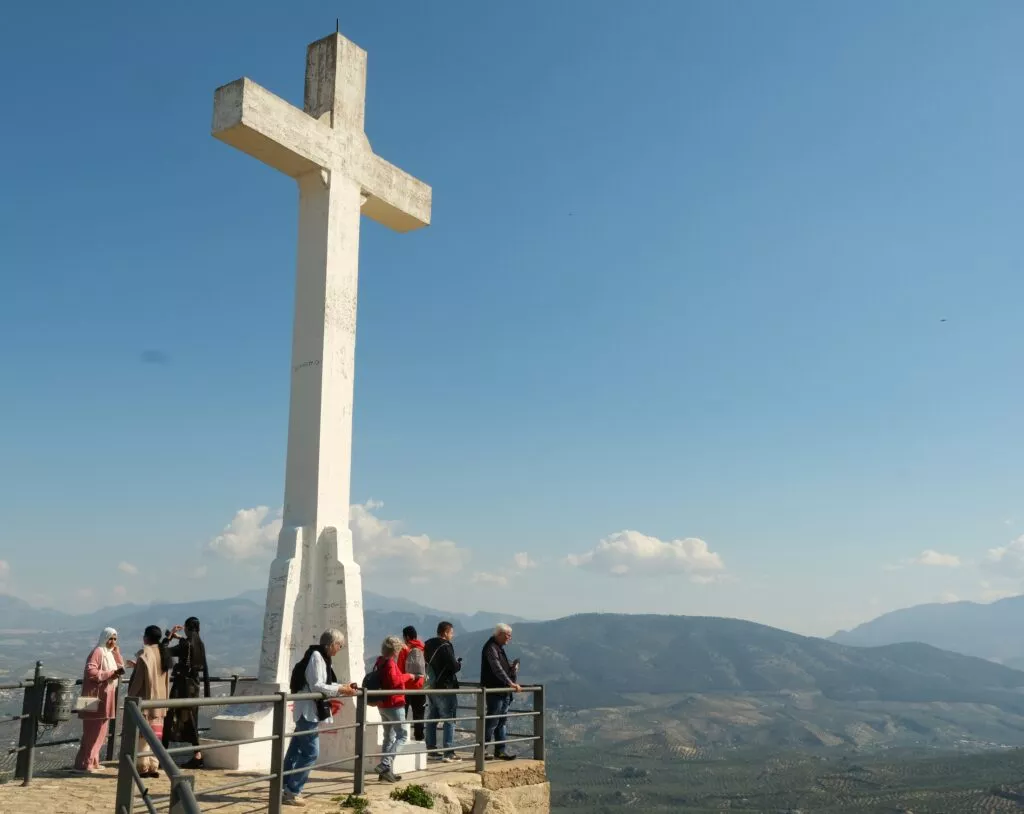
The Cathedral of the Assumption in Jaén, an incredible place to see in Jaen
Whether you’re a believer or not, Jaen Cathedral is an architectural gem that’s well worth a visit.
The former aljama mosque of Jaen once stood on this site. In 1246 Fernando III ordered the construction of a church on the site. Over the centuries, a Gothic-style cathedral was built, which later underwent numerous transformations to become Renaissance-style.
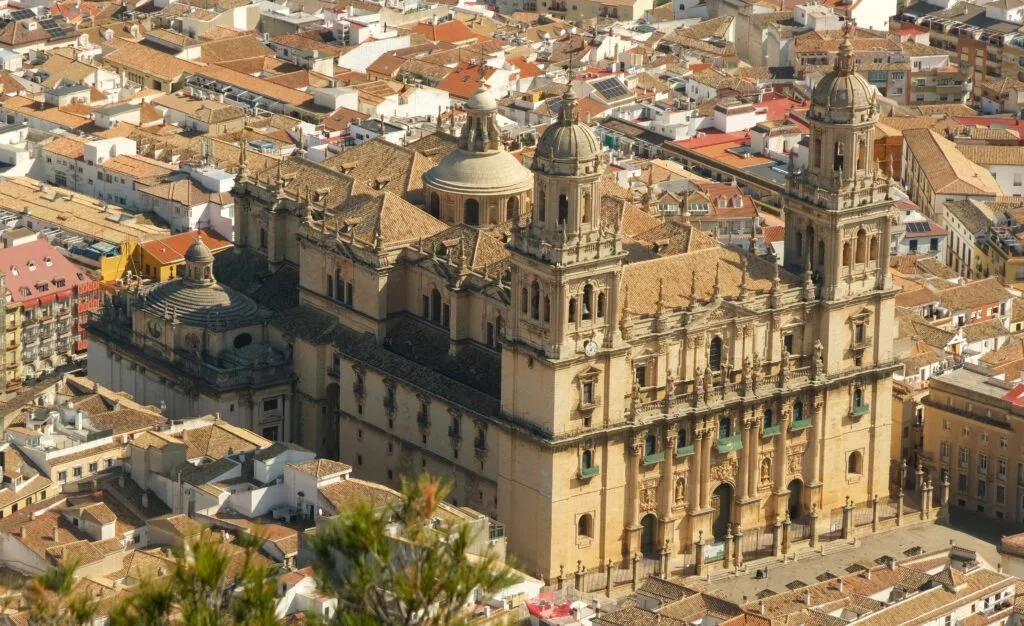
The Cathedral of the Assumption has since become an emblem of Renaissance architecture. It was also a model for the construction of other cathedrals in Spain and America.
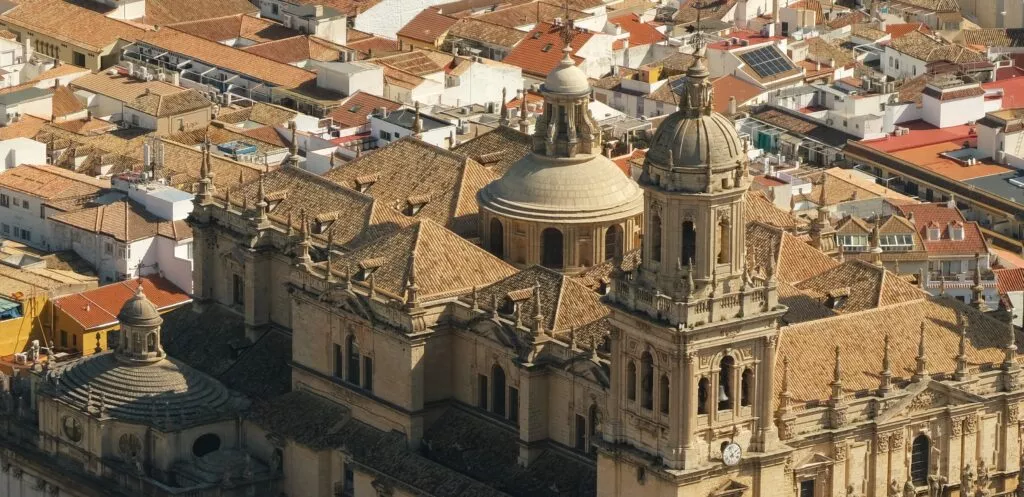
It is notable for being the only one in Spain to have balconies around the entire perimeter of the façade. There are no fewer than 62 balconies, 27 outside and 35 inside, and more than 100 windows.
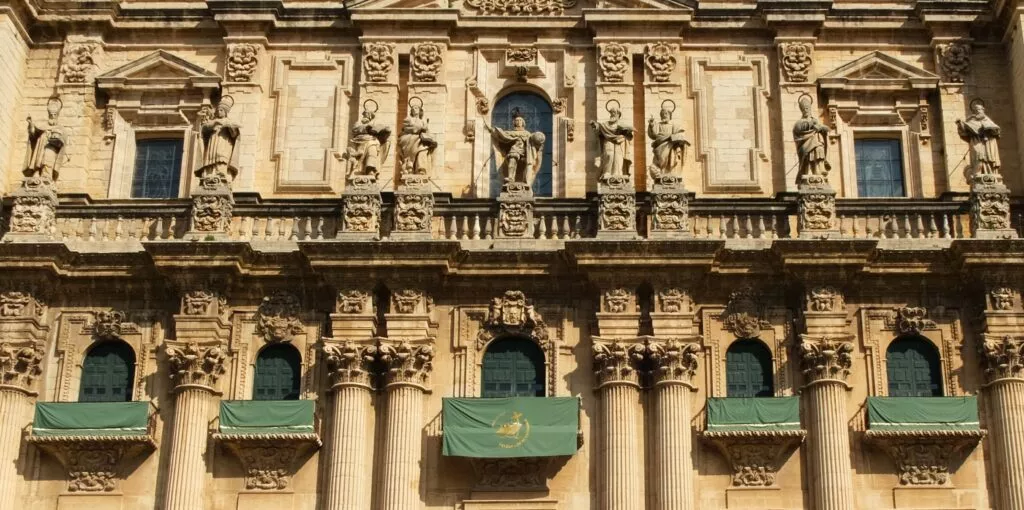
Once inside, you’ll be amazed by the mix of Renaissance, Baroque and Neoclassical styles. The splendour of features such as :
- the many interior balconies,
- the dome
- the choir (one of the largest in Spain),
- the sacristy
- the high altar,
- the minor chapels
- the chapter house, which dates from the 16th century. It houses a 16th-century altarpiece by Pedro Machuca, a disciple of Michelangelo
- the main chapel
- the Holy Face, one of the cloths on which Christ wiped his face on the way to Calvary
Note: the Holy Face is protected by a reliquary adorned with rubies, diamonds and emeralds and, on Fridays, it is displayed in a chapel adjoining the cathedral for those who wish to see it.
A visit to the interior of Jaen Cathedral is bound to leave you feeling emotional. Below, you can book several places to visit in Jaen online.
The mona (monkey) of Jaen
On one of the imposing façades of the cathedral stands the monkey of Jaen, known as Bafomet.
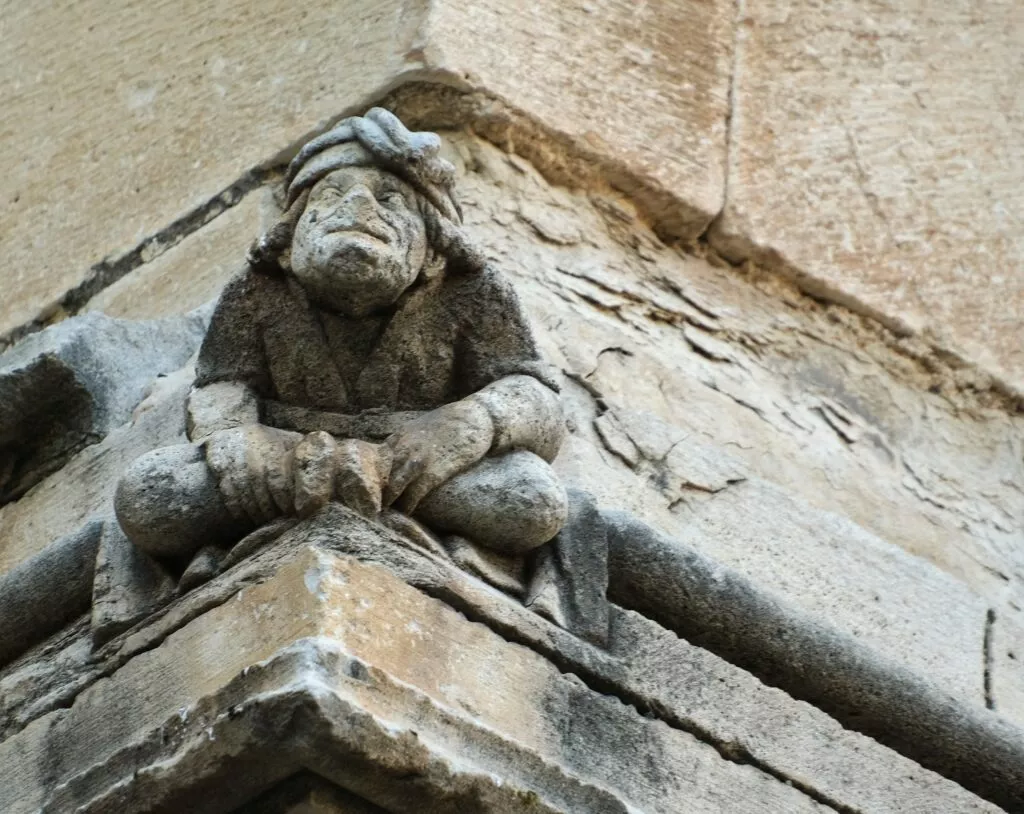
It is a sculpted stone figure, a gargoyle, in an exterior frieze. The story surrounding this figure goes back centuries and has been passed down from generation to generation. The monkey is an enigmatic figure that has intrigued visitors and residents of Jaén for centuries.
There are many legends about the Mona de la Catedral :
The monkey of Jaén is said to be a living being that has been petrified by a spell. According to the story, the monkey was a beautiful young woman who lived in Jaén at the time of the Catholic Monarchs. She was known for her beauty and kindness. However, she aroused the envy of a sorcerer who wished to possess her…
It is also said that, in the days of the Catholic kings, this little gargoyle watched converts to remind them that their actual conversion to Catholicism was being monitored.
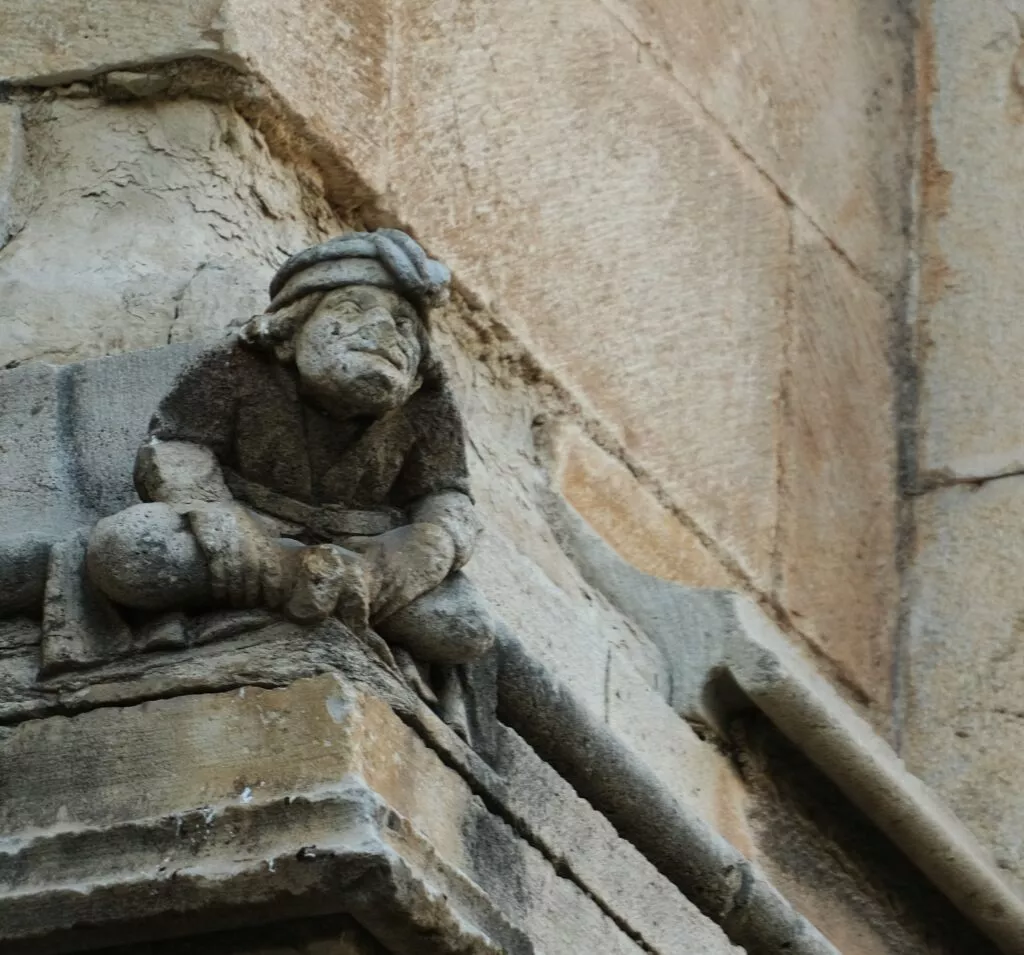
Another legend has it that this little gargoyle has a curse. This curse foretells misfortune to anyone who dares to look directly into the monkey’s eyes.
The Arab baths
This is one of the most beautiful places to see and visit in Jaen.
The history of the Arab baths in Jaen is rather unusual: they are located beneath a palace, the Palacio de Villardompardo. What’s more, they were rediscovered just over a hundred years ago, in 1913, during work in the palace’s basement.
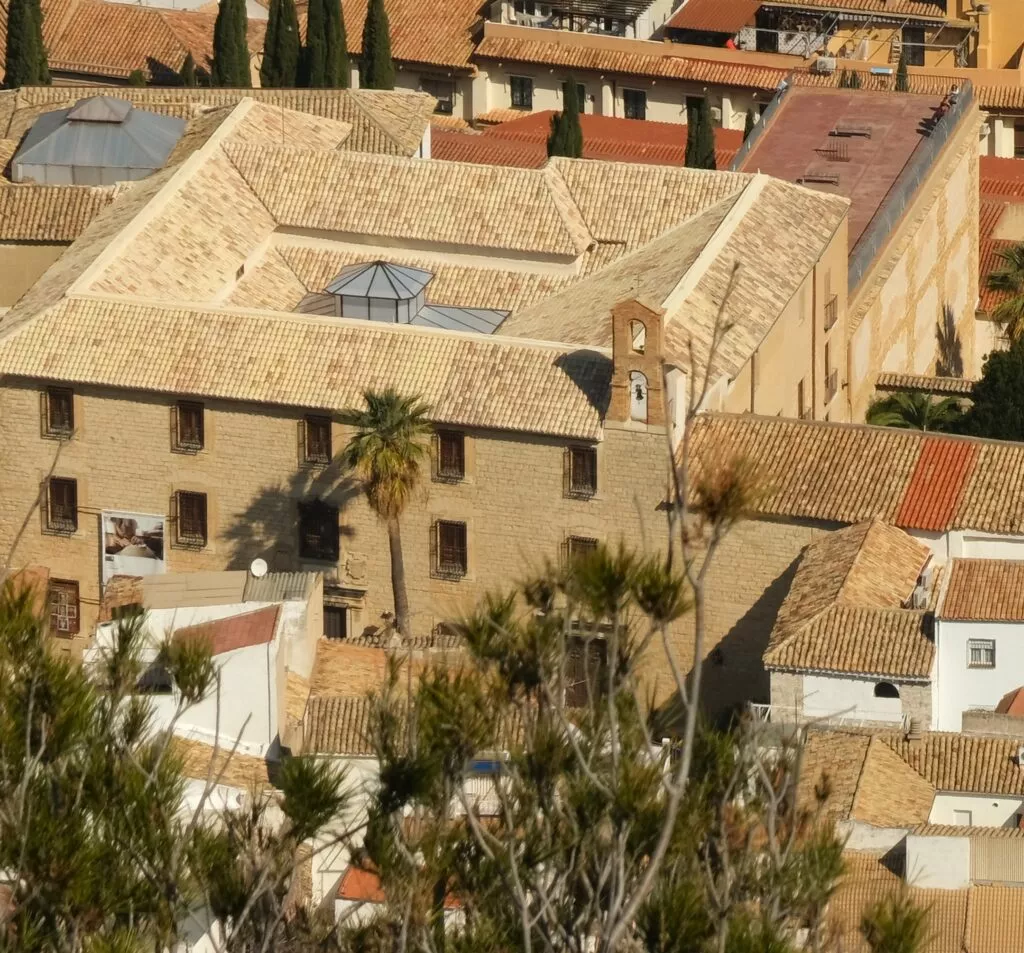
These Arab baths were built in the 11th century as a public hammam. It is a remarkable example of heritage conservation and a precious legacy of the Muslim era in Andalucia. They are also considered to be the largest and best preserved in Europe.
The best way to discover the history of these baths is to book a guided tour (see below, in the section on what to do in Jaen).
The Santa Cruz district, the must-see area of Jaen
Once you’ve seen the Arab baths, you can head next door to Jaen’s old judería. The Santa Cruz district of Jaen is in fact the city’s former Jewish quarter. A stroll through the barrio de Santa Cruz is one of the best things to do in Jaen. You can still breathe in the history as you stroll aimlessly through the narrow streets of this medieval quarter.
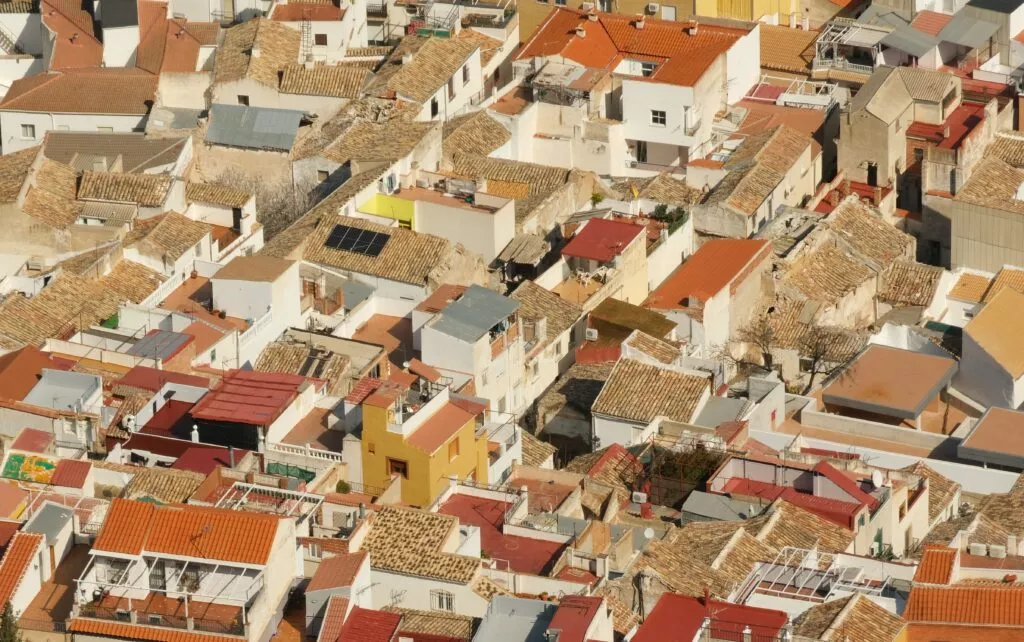
Don’t miss :
- the monastery of Santa Clara, home to the synagogue that later became the church of Santa Cruz,
- the church of San Andrés (also thought to be a former synagogue):
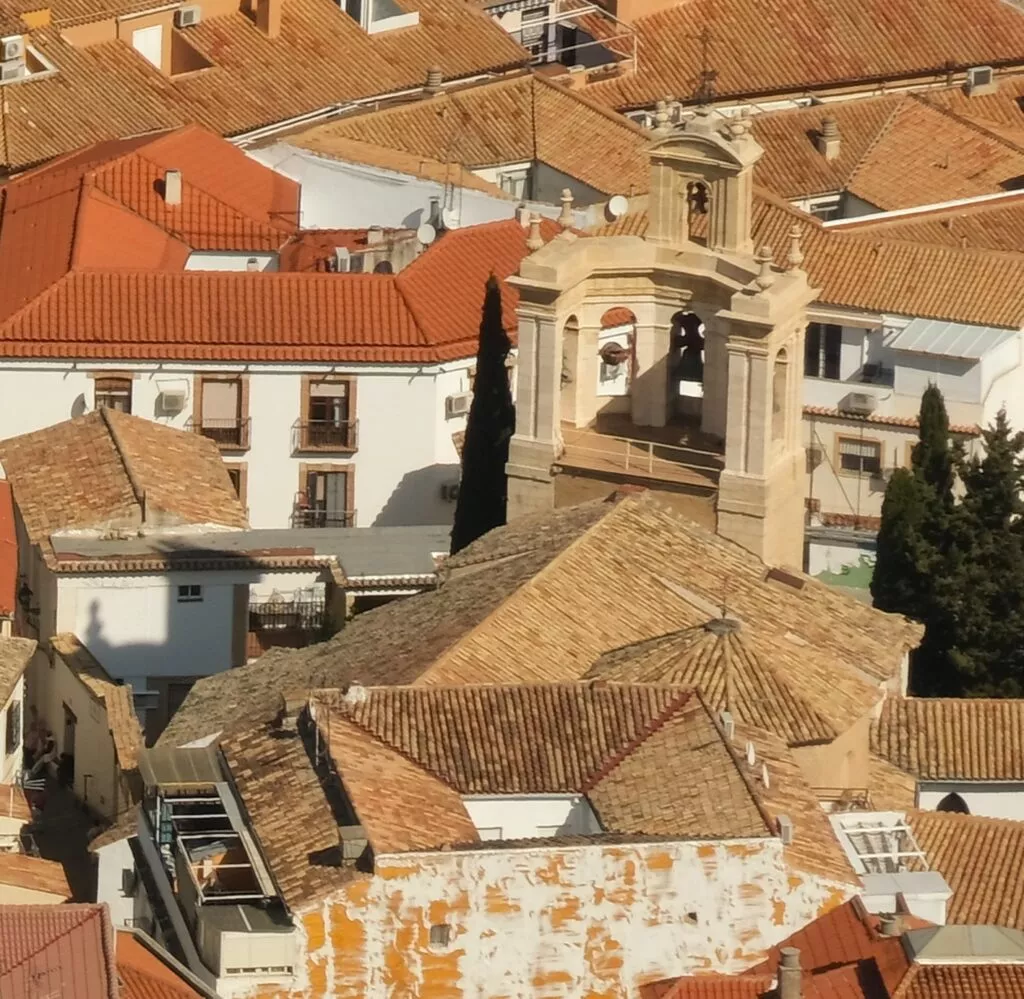
- the church of San Juan Bautista (a former mosque)
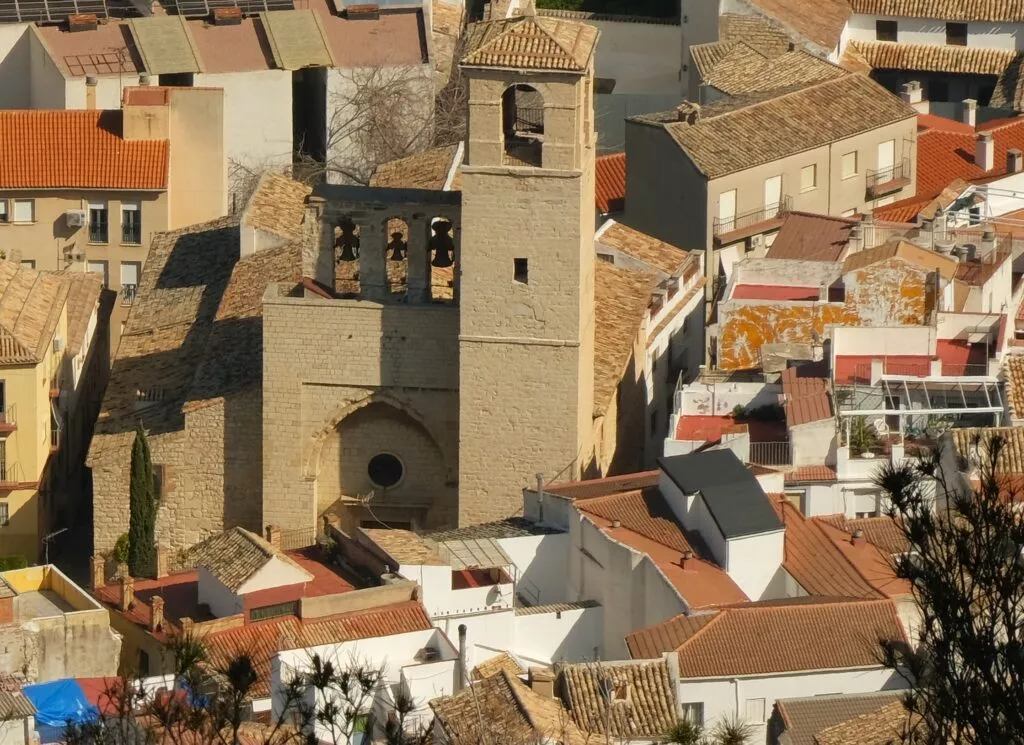
- Callejón del Gato (Cat’s Alley)
- Calle Rostro
- Calle Cruz
- Plaza de los Huérfanos (Orphans’ Square), where there is a monument to the Jews expelled from the city.
Note: at the bottom of the monument is a double inscription in Spanish and Ladino, reminding us that ‘the traces of those who walked together can never be erased’. In Ladino: ‘las trasas de ken anduvieron endjuntos nunca podrán ser albaldadas’ .
Hasdai ibn Shaprut
Talking about the Judería of Jaen is an opportunity to highlight Hasdai ibn Shaprut. This man had an absolutely extraordinary destiny, as a Jewish doctor and diplomat in Al-Andalus!
Full name Hasday Abu Yusuf ben Yitzhak ben Ezra ibn Shaprut was born in Jaen (Jayyān) in 915 and died in Cordoba (Qurtuba for the time).
In his youth, Hasdai learned Hebrew, Arabic and Latin. He also studied medicine. In fact, he is reputed to have discovered a universal remedy or panacea known as ‘Al-Faruk’.
As physician to the Caliph Abderraman III, he became one of his principal advisers. Although he never received the official title of vizier (minister), he performed functions similar to those of a modern foreign minister for the Caliphs Abderraman III and Al-Hakem II.
He established alliances between the Caliphate of Cordoba and other powers and was responsible for receiving embassies, such as the one sent to Cordoba in 949 by the Byzantine emperor Constantine VII, who brought the Caliph a magnificent codex of Dioscorides‘ botanical works, which were much appreciated by Arab physicians and naturalists. With the help of a learned Byzantine monk named Nicholas, Hasdai translated the work into Arabic.
He was also appointed Nasí by the Caliph, i.e. head of the Sephardic community in the Caliphate, until his death in 975, leaving an incredible legacy to the whole world.
The Magdalena quarter and church
The Church of the Magdalena, the oldest church to be visited in the city of Jaén, was built in the early 16th century on the site of a former mosque, whose courtyard and minaret have been preserved.
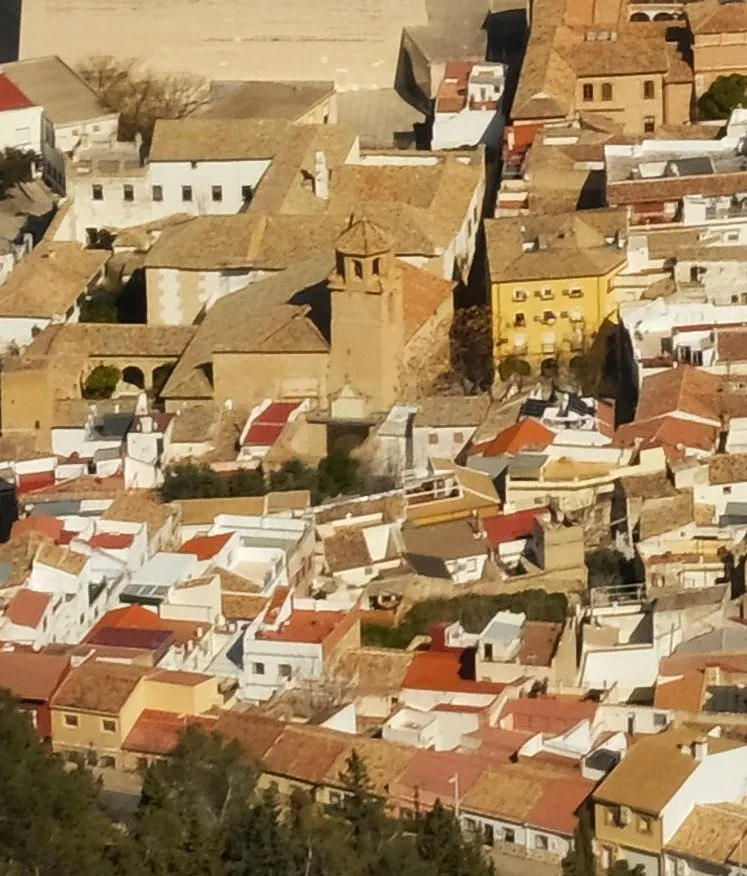
Note: opposite the church is the Raudal de la Magdalena, a fountain where, according to legend, Jaén’s famous lizard had its lair. It is a symbol of the city, which is also listed as one of Spain’s intangible cultural heritage sites. Interestingly, this famous lizard is the inspiration behind a music festival: Lagarto Rock.
The air raid shelter
Then, not far away, you’ll find another of the most interesting things to do in Jaén: visit an air-raid shelter built during the Civil War. It was built after the city was bombed on 1 April 1937 by the German Condor Legion. It can also be visited.
La Puerta del Angel
This gateway, La Puerta del Angel, is worth seeing as it was built in 1646 and is the only surviving gateway to the old walled city. It is also attached to the convent of the Barefoot Franciscan nuns.
Minor Basilica of San Ildefonso
The Basílica Menor de San Ildefonso (Minor Basilica of San Ildefonso) was built in 1248 after the walled enclosure of the Al-Andalus period was extended. It is located behind the Cathedral.
It is well known and appreciated by the people of Jaén for having been the scene of a famous miracle in 1430: the descent of the Virgin Mary into the city of Jaén.
The Iberian Museum
On the Paseo de la Estación there is a neoclassical palace inspired by the 16ᵉ century. This palace houses the Provincial Museum of Jaén.
It houses a remarkable collection of ancient and pre-Roman art. Inside you’ll also find the Museum of Iberian Arts, which exhibits the most important collection of Iberian art in Spain.
What to do in Jaen
Below you’ll find a number of ideas for activities and guided tours in Jaen. You can book them online today.
Bonus: all activities can be cancelled up to 24 hours before the scheduled date.
Book accommodation
Below you will find all the hotels and accommodation available in Jaen, once you have selected your dates:
An idea for accommodation: the Parador de Jaen. This hotel adjoining the Santa Catalina castle, on the heights of the city, was voted on Tripadvisor as one of the 10 most beautiful castles in Europe in which to stay.
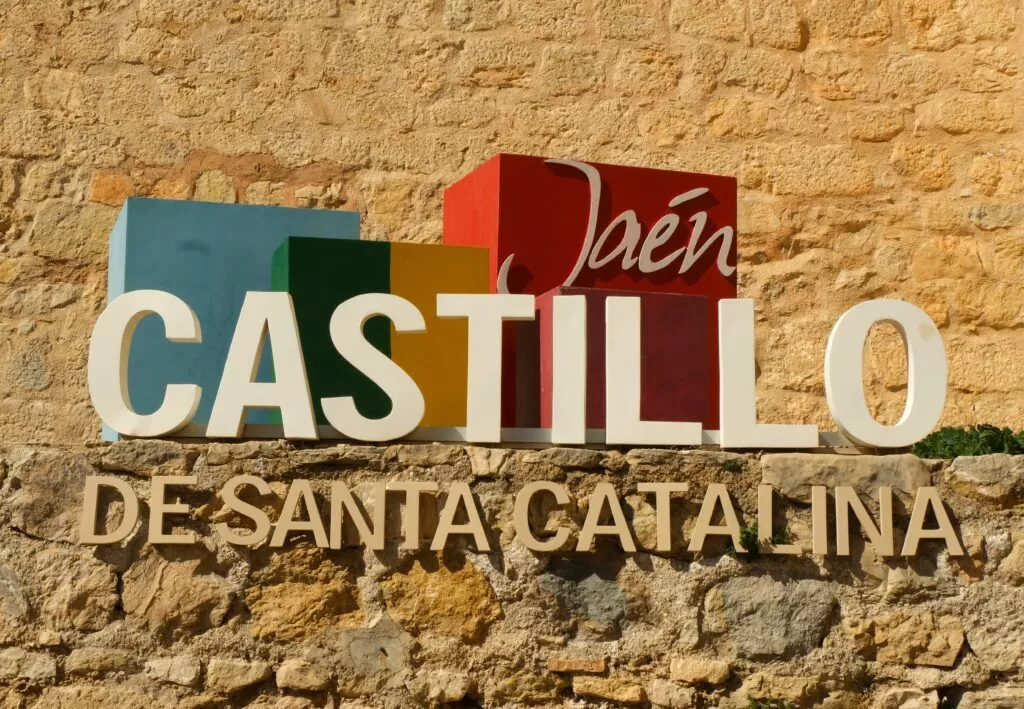
Here’s the link to find out more and/or book a night at the Parador de Jaen.
Best ferias in Jaen
The best festivities in Jaen are actually two romerías (pilgrimages). The first takes place just outside the city and the second in Andujar, 45km away.
‘El Cristo de Charcales’ romería
This romería is better known by the name of Cristo del Arroz. The nickname comes from the fact that Jiennenses families traditionally prepare a number of rice-based dishes during this festivity.
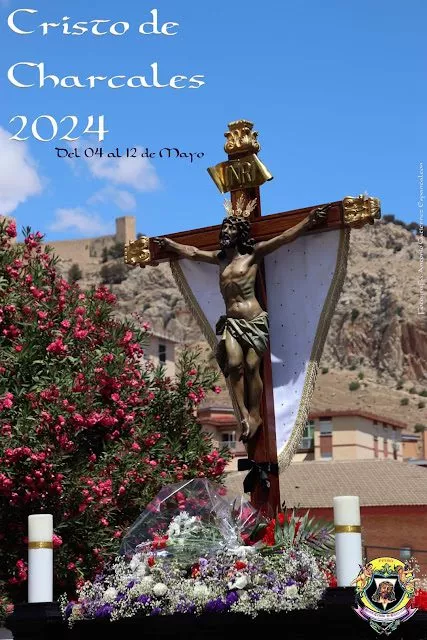
La romería de Nuestra Señora de la Cabeza
This romería, recognised as being of National Tourist Interest, is reputed to be the oldest romería in Spain. It attracts several hundred thousand romeros to Andujar every year. It is undoubtedly the best-known romería after the Romería del Rocío.
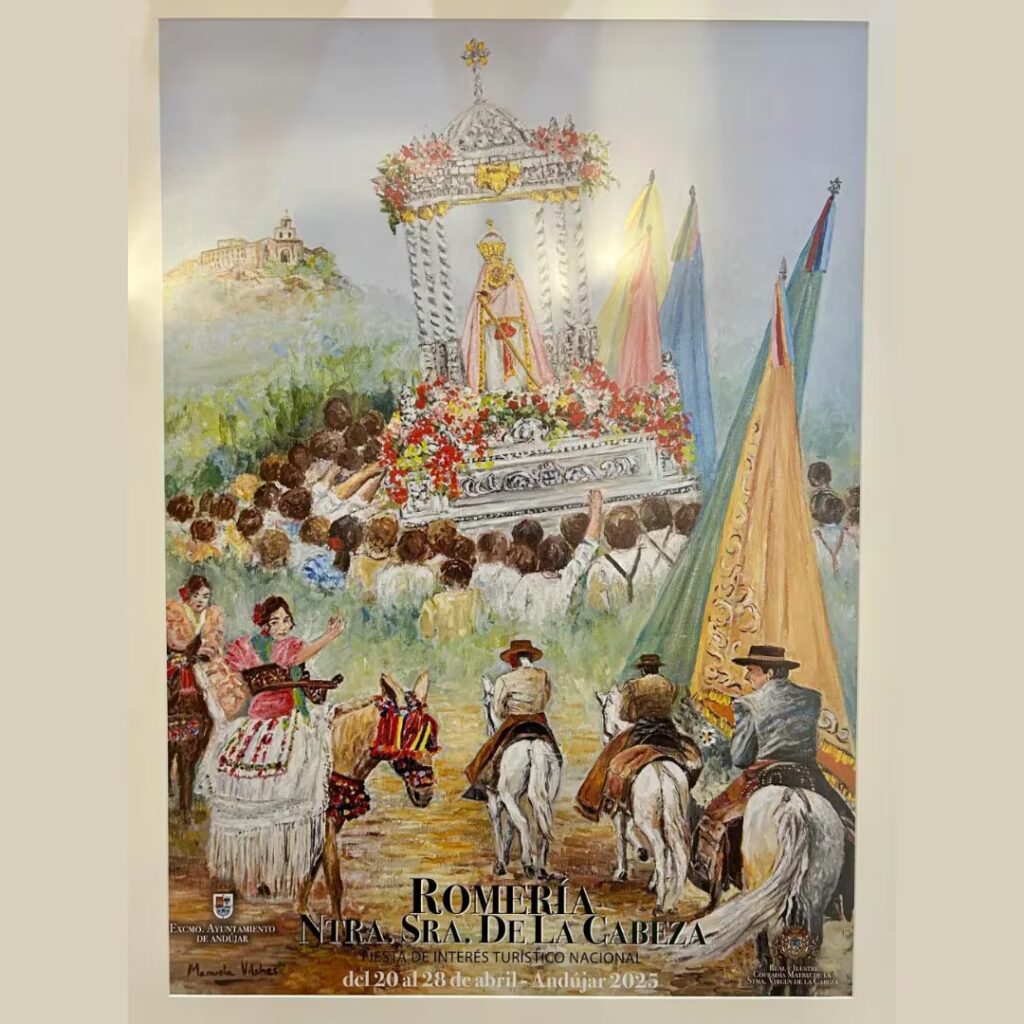
What to see around Jaen
The province of Jaen offers a wealth of places to visit, especially for lovers of castles and nature. Here are two extraordinary towns not far from Jaen: Ubeda and Baeza.
Ubeda is a museum town, with so many monuments to see
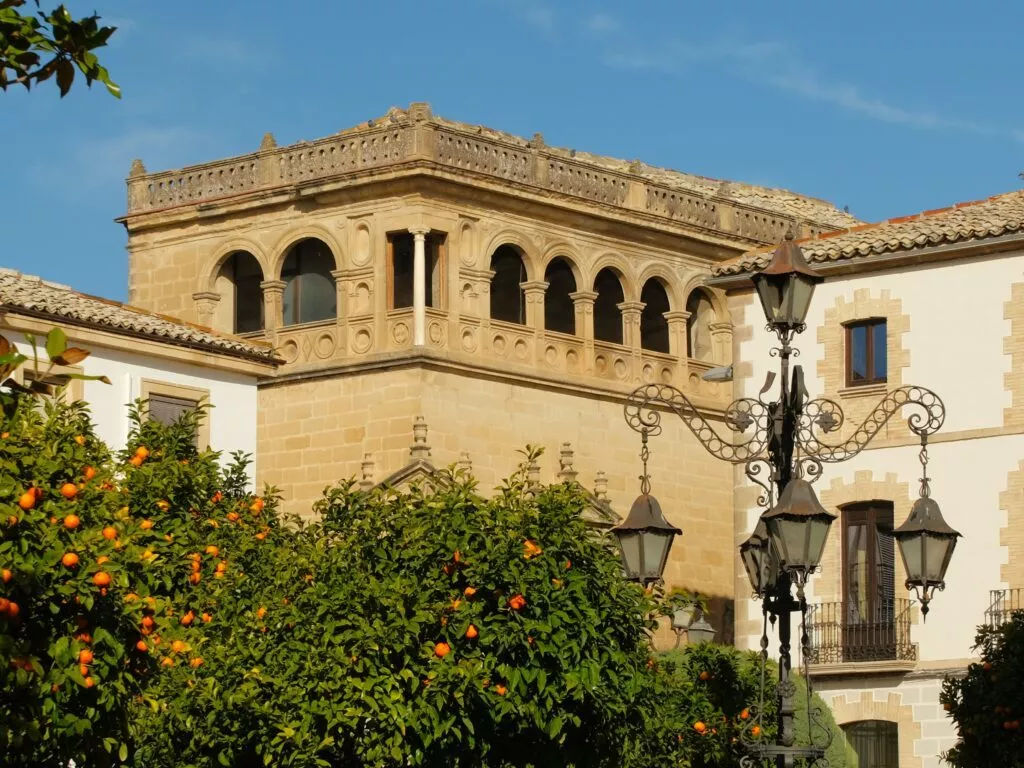
Here’s the link to visit Ubeda (under construction)
Baeza, Ubeda’s little sister, symbol of the Renaissance
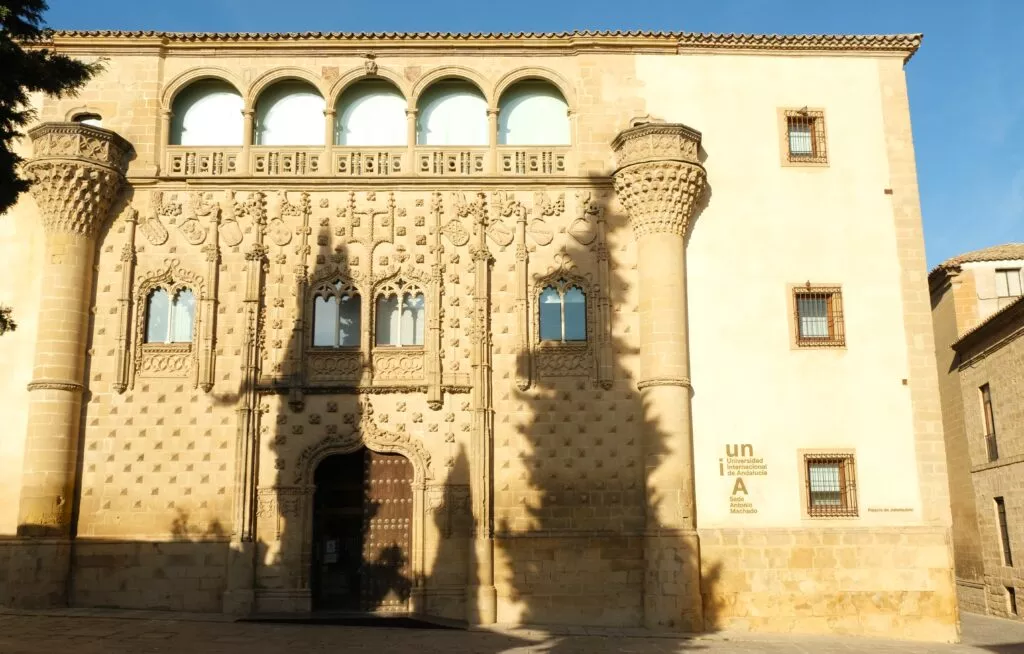
Here is the link to visit Baeza (under construction)
Some useful links
Easy and economical bookings
Here are the latest articles on Andalusia
-
Interactive map of Andalucia with best places to see
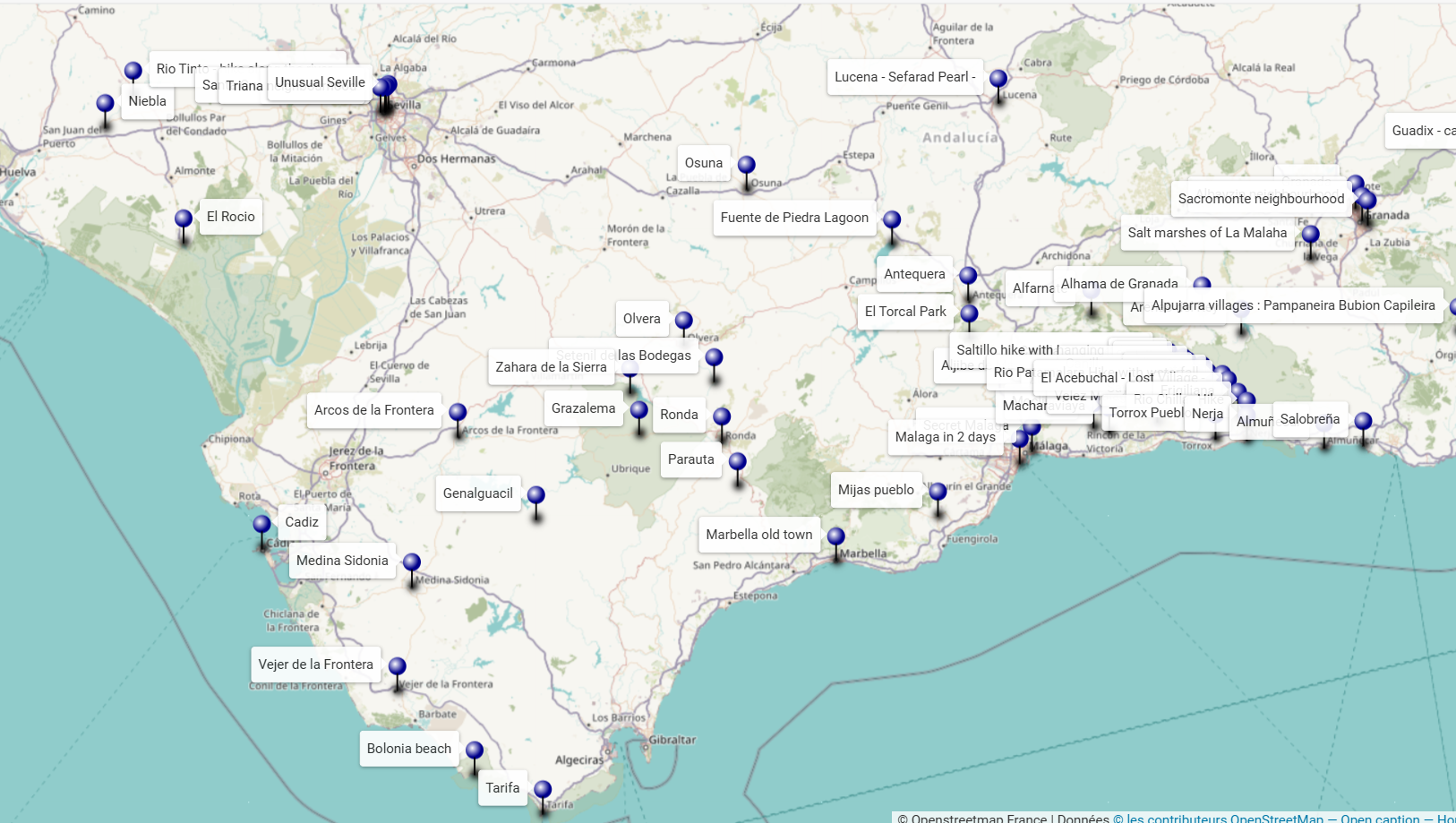
An interactive map of Andalucia to discover the sites to see around your holiday destination or to prepare a tour or road-trip.
-
What to see in Mojacar, a wonderful white village in Almeria
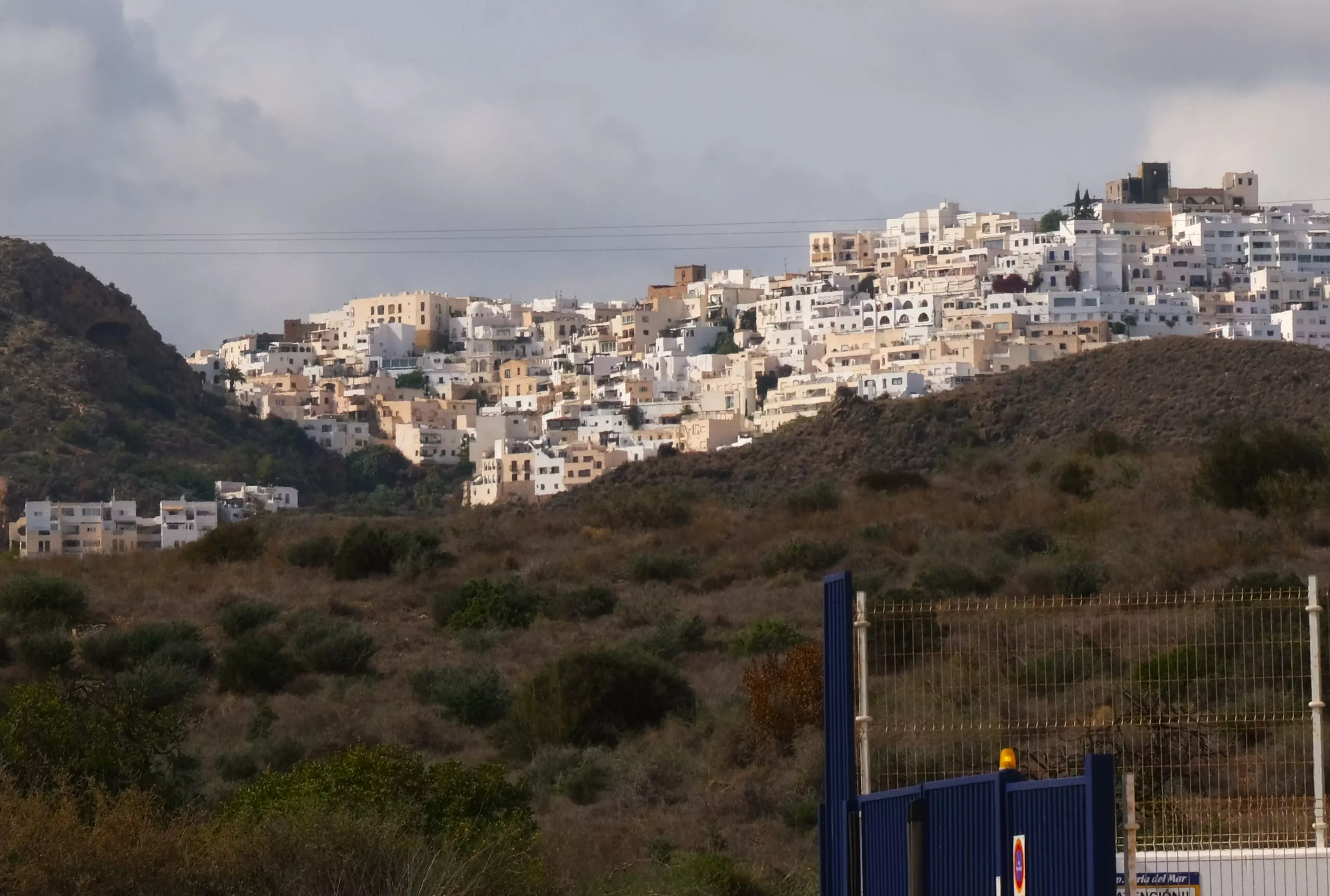
Discover the 14 essential things to see in Mojacar to make the most of your visit to this delightful white village in the province of Almeria.
-
What to see in Zuheros a wonderful white village in Cordoba
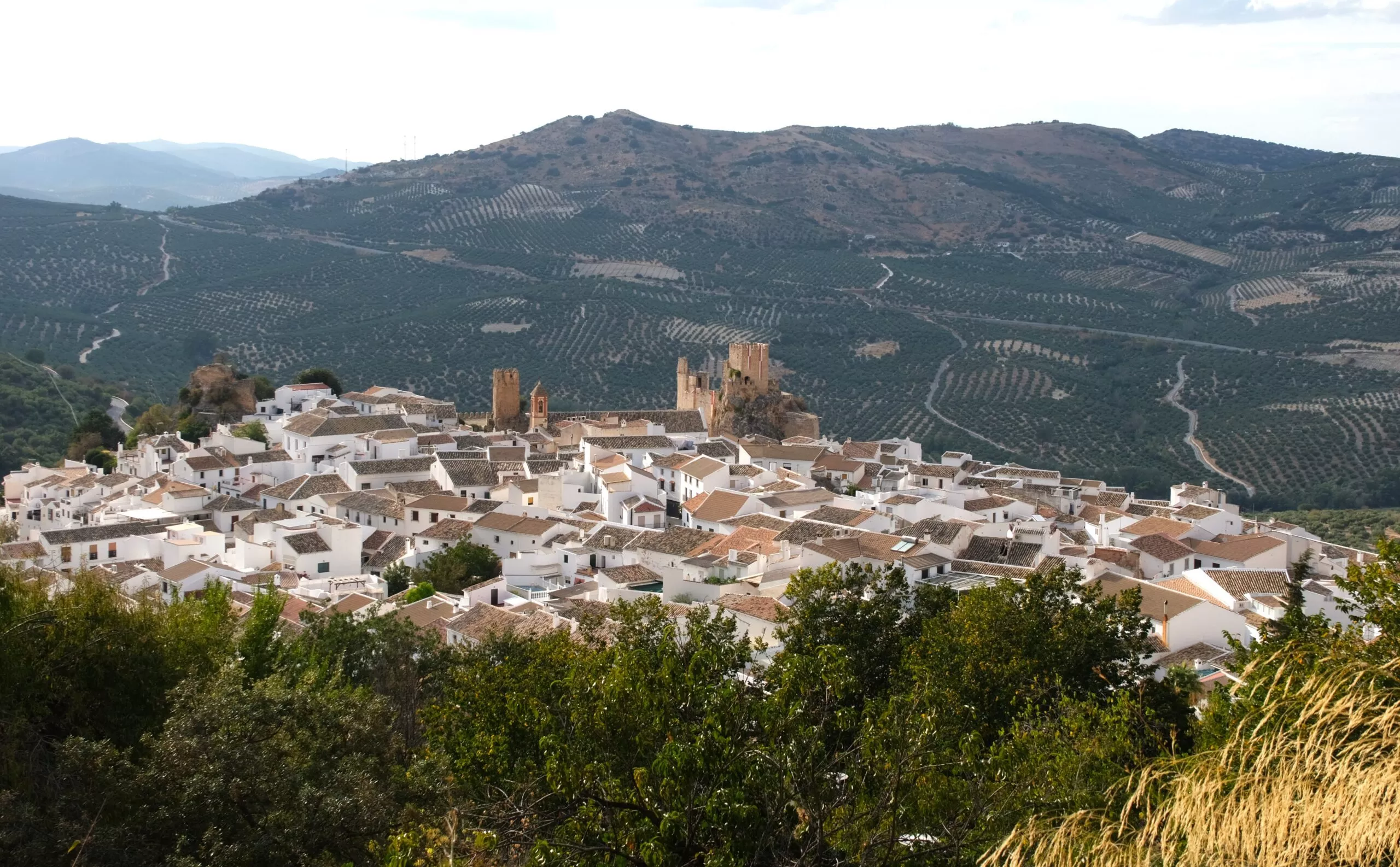
Here are the 16 things to see and do in Zuheros, a wonderful white village in the province of Cordoba, Andalucia.
-
What to see in Montefrio Spain, a wonderful little place

Here’s everything you need to see in Montefrio – Granada province -, a village steeped in history with fabulous views.
